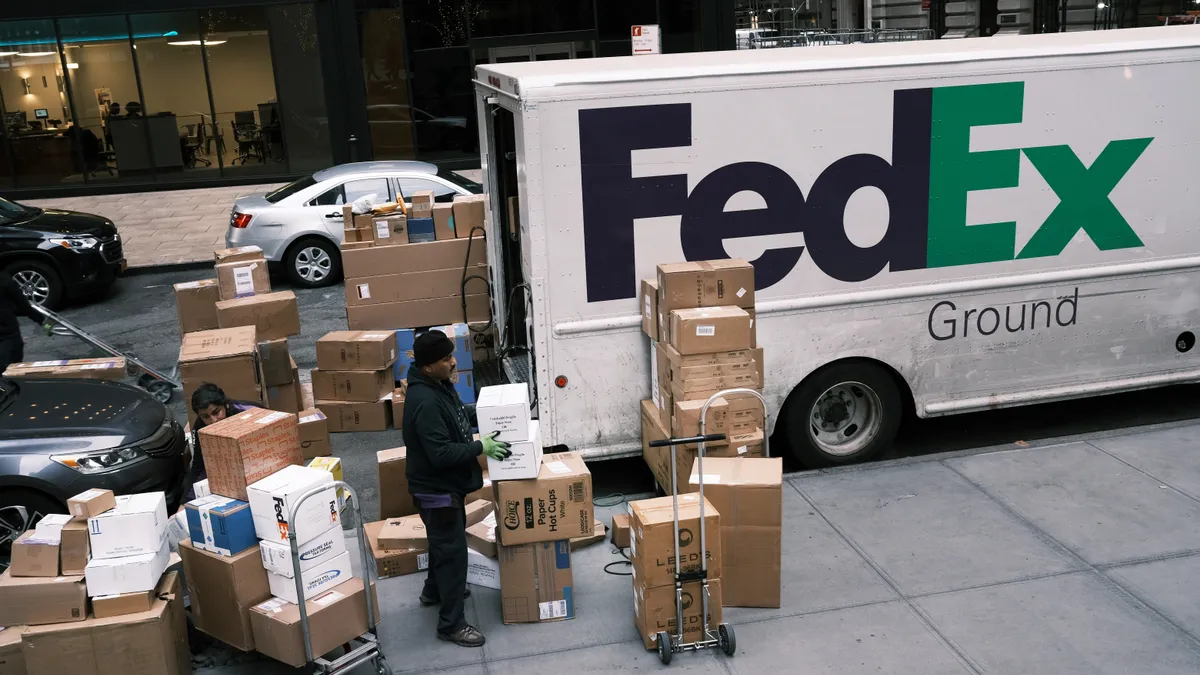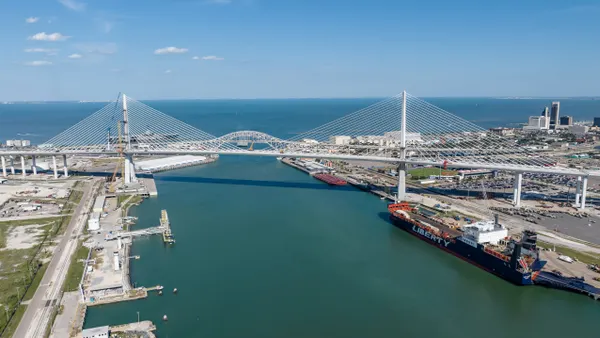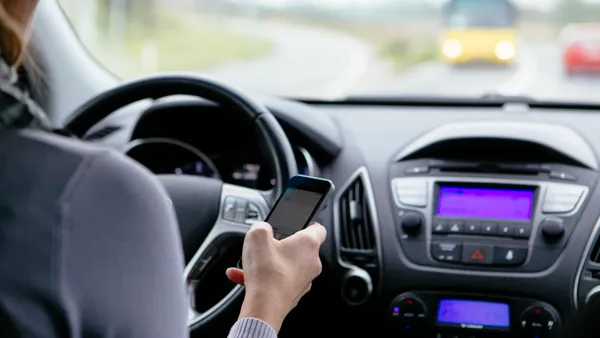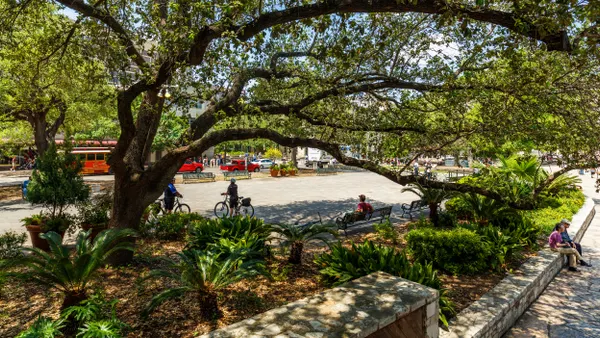Dive Brief:
- Eight U.S. cities and one county will test innovative strategies for slashing delivery-related greenhouse gas emissions through a zero-emissions delivery challenge launched Jan. 9 by Climate Mayors, C40 and the Los Angeles Cleantech Incubator with funding from Wells Fargo.
- Cities participating in the initiative are Los Angeles; Pittsburgh; New York City; Washington, D.C.; Santa Monica, California; Oakland, California; Portland, Oregon; and Louisville, Kentucky. Miami-Dade County, Florida, will also partake in the program.
- The effort aims to address cities’ concerns about the air and climate pollution impacts of the growing volume of online order-delivery trucks that move goods through the first and last mile of the supply chain, predominantly impacting low-income, disadvantaged communities.
Dive Insight:
Across the globe, the increasing demand for delivery is projected to drive up emissions from local delivery traffic alone by 32%, according to a National League of Cities action guide published last year. Some cities, including those participating in the zero-emissions delivery challenge, are already experimenting with ways to keep those emissions down.
New York City, for example, wants to turn its waterways into “blue highways” that officials say could move goods more safely and efficiently. Santa Monica created the nation’s first “zero-emissions delivery zone” in 2021, according to the Los Angeles Cleantech Incubator. These zones, which only allow zero-emissions delivery vehicles, are “the latest, most ambitious approach to incentivizing the electrification of commercial fleets,” the NLC said in its action guide. The guide also highlights strategies such as requiring deliveries to occur during off-peak hours, congestion pricing, curb management rules that encourage faster delivery drop-offs and bike lane improvements to support deliveries by cargo e-bikes.
Through the zero-emissions delivery challenge, cities will identify innovative startup and corporate solutions to try. On top of getting access to funding for select startup solutions, participating cities will receive technical support, data analysis, peer-to-peer learnings and meetings with existing private sector delivery companies.
After identifying successful strategies, the Los Angeles Cleantech Incubator will help cities upscale them and provide access to debt and venture funding for startups. The incubator is an economic development initiative created in 2011 by the City of Los Angeles and the LA Department of Water and Power to boost the green economy and help build emerging cleantech companies.
Washington, D.C., plans to leverage the support of the cohort to create a delivery microhub that supports more sustainable last-mile delivery modes, such as e-cargo bikes, Sharon Kershbaum, interim director of the District Department of Transportation, said in a statement. “Not only will this mode-shift opportunity help the city meet its emission reduction goals, it will also encourage better curbside usage and traffic safety,” she said.












